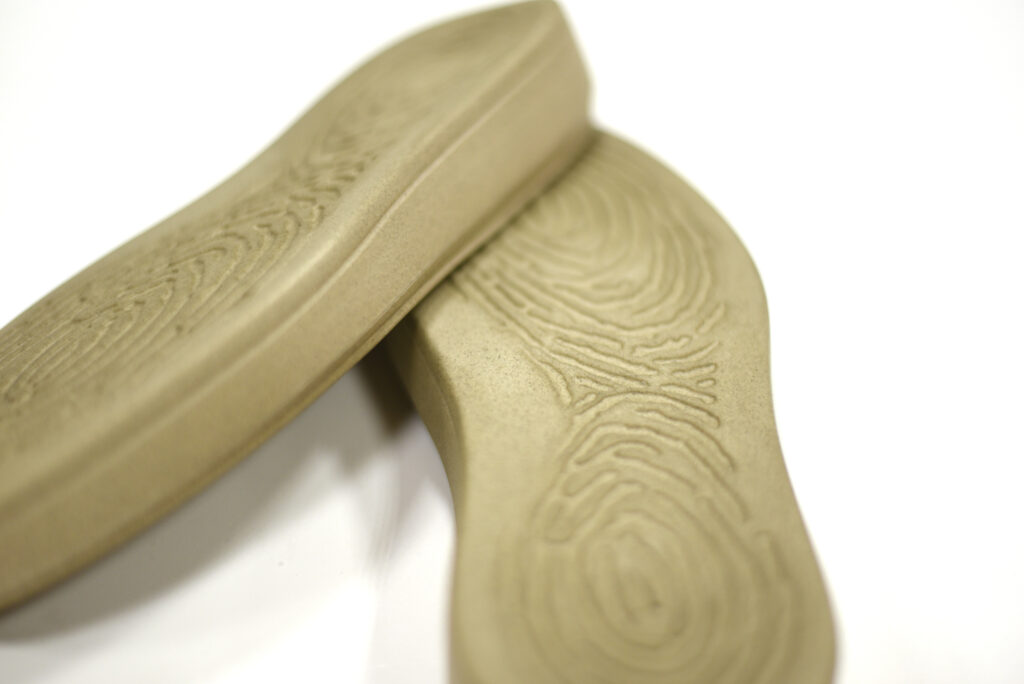Bio-based materials derive in part from a ‘plant biomass’ and thus from a renewable source (unlike those of fossil origin, which are – instead – obtained from oil refining).

Therefore, Bio-based is defined as both biocomposites, containing biomass powder mixed with a virgin ‘carrier’, and those plastics containing polysaccharides or proteins obtained from the chemical processing of a biomass.
The use of organic matter implies (by mathematics) less reliance on fossil-derived matter, promoting the carbon-neutrality of a company or product.
The bio-based TPR, TPU and EVA selected by Corplast:
- come from biomass that does not conflict with human or animal nutrition;
- have a biological content of between 30% and 80%;
- have technical and aesthetic characteristics that are indistinguishable from those of fossil-based materials (spoiler: instead, when seen, the “bio” or “recycled” effect is intended).




